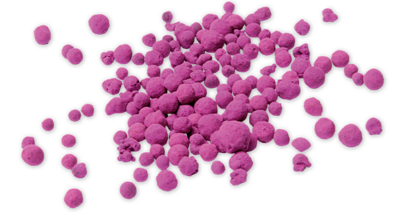The problem of exhaust air
Whether the wastewater treated in plants smells bad or not is dependent on many factors. Wastewater’s constituents determine its potential to generate odors. These constituents vary greatly depending on whether the source of the wastewater is industrial plants or private households. Many wastewater treatment plants perform a mechanical pretreatment and then biological clarification using microorganisms such as bacteria and fungi.
In the case of low to moderately contaminated wastewater, organic matter and pollutants can be degraded under the influence of oxygen. This aerobic process results in relatively low odor generation. Anaerobic wastewater treatment, which is less expensive and suited to heavily polluted wastewater, excludes oxygen and therefore produces odorous gases such as hydrogen sulfide and ammonia.











